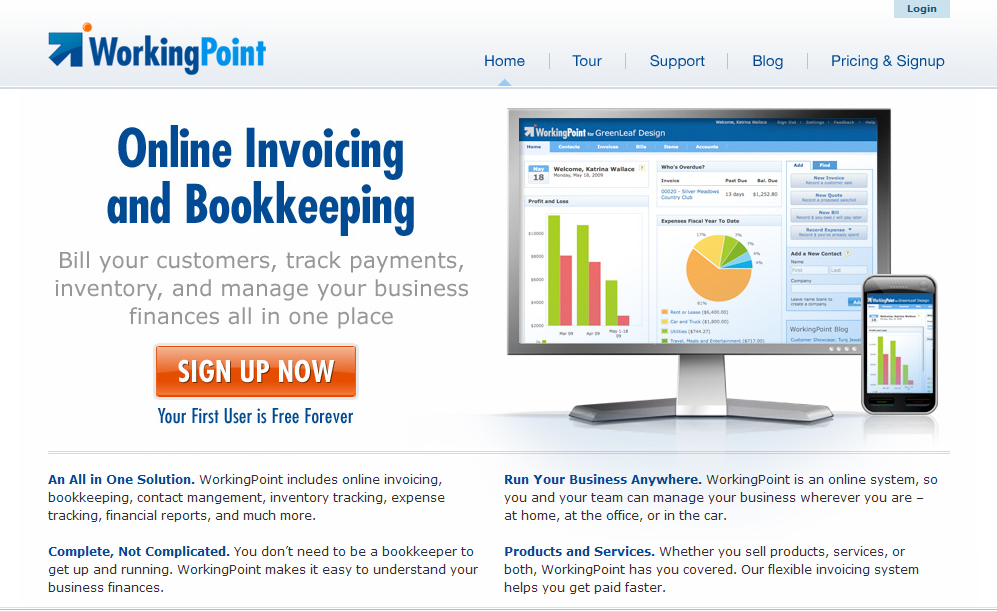WorkingPoint Announces Addition of Online Payroll Services
Topic: Press Releases | Comments (1)
December 16, 2009 – San Francisco, CA – WorkingPoint™, Inc., the developer of easy-to-use online business management software for small businesses, announced today the addition of a new, convenient small business online payroll service that will enable WorkingPoint’s subscribers to run payroll for their employees at an affordable price. WorkingPoint’s payroll service is enabled through a partnership with Business Online Payroll, which specializes in online payroll processing for small businesses. Much like WorkingPoint, Business Online Payroll offers a comprehensive, full service online solution for small businesses.
Subscribers of Business Online Payroll can dependably calculate employee wages and deductions; deduct, deposit and file all federal, state and local taxes; track employee benefits; pay employees by direct deposit at the bank of their choice or by printing a manual check; provide comprehensive online reports that are readily accessible day or night; and eliminate IRS penalties and handle IRS notices.
Through this payroll service, WorkingPoint subscribers can save up to 50% compared to traditional payroll models. They can also preview payroll online to check for accuracy before processing, access payroll reports online and export them easily, and speak with a friendly, U.S.-based payroll expert when needed. For employees, this service provides email notices alerting them they’ve been paid. Plus the employer can grant employees secure online access to their individual pay stubs and payroll history.
“Our subscribers have been asking us for payroll services, and we are pleased to be able to provide them with a comprehensive set of services at a reasonable price,” said WorkingPoint CEO Tate Holt. “Small business owners look to WorkingPoint for complete, uncomplicated solutions that manage their whole business, and this offering helps us meet their needs.”
The payroll features are another addition to WorkingPoint’s premium services offering and will be available immediately. WorkingPoint is continuing to expand its services in other areas as well before the end of the year with the recent addition of new features designed to help subscribers more easily complete their income taxes and a new tool that enables customers to collect invoice payments with PayPal.
For a list of features included with WorkingPoint’s free and premium offerings along with corresponding prices, go to www.workingpoint.com/pricing-and-signup/.
 As
As  Scott’s list reminds me of a principle called
Scott’s list reminds me of a principle called 
 CNN
CNN
 As a content strategist one of the things
As a content strategist one of the things 
